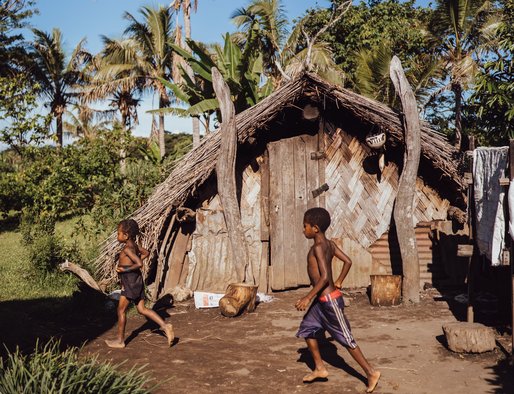In a major disaster, hundreds of thousands of homes can be devastated. Emergency shelter protects vulnerable people from danger, suffering and exploitation following a crisis, whether man-made or the result of a natural hazard.
When houses are destroyed, people don’t just lose their homes. They lose their largest financial and social assets. They lose their sense of belonging and family heritage. Their home may also be their workplace, so they may lose their ability to earn a living.
How does CARE respond to shelter needs?
CARE works with communities and partners to provide emergency shelter in the immediate aftermath of a disaster, and we support people to rebuild or repair safer and more resilient homes.
Our shelter programming is not just about tents or construction. We address lack of shelter in a range of other ways, including:
- Supporting incomes and livelihoods
- Providing cash for shelter
- Giving people access to tenure and ownership rights
- Providing technical assistance and training
- Settlement-level infrastructure and community projects
Supporting self-recovery
Central to our approach to shelter is the principle of self-recovery. The people who are affected by disasters are the first on the scene, and the most important stakeholders. The self-recovery approach was used for an award-winning project in the Philippines following Typhoon Haiyan (2013).
We support people to have choice and agency over how their homes are rebuilt and repaired. We work closely with local experts and partners to find local solutions and ensure community needs are met.
Focus on women and girls
Also core to our shelter work is a strong focus on women and girls, who are disproportionately affected in a humanitarian context. Existing gender roles and power dynamics most often discriminate against women and girls, and create significant obstacles to their ability to access safe housing.
We are a global leader on gender and shelter programming. We build the specific needs of women and girls into the design of shelter programmes, ensuring that women and girls are empowered to play a role in rebuilding and restoring their homes.
CARE’s Global Shelter Team
CARE’s Global Shelter Team is hosted in London by CARE International UK. The team provides technical support to CARE’s Country Offices on shelter programming, as well as representing CARE on the global stage as part of the Global Shelter Cluster. We have dedicated research capacity, and are currently exploring the wider impacts of shelter on health and mental health.
Learn more
-

Shelter in Lebanon: The first step towards dignity and recovery
-

Creating safe spaces for women and girls in Cox’s Bazar refugee camp, Bangladesh
-

Buro Happold partners with CARE International to provide shelter in emergencies across the world
-

Five things you should know about the lack of Shelter in Gaza
-

"I know how difficult it is to look for shelter": A day in the life of a humanitarian shelter advisor in Ukraine
-

‘‘Ya Mariupol’’: Inside the shelter support centre run by survivors of Mariupol, for survivors of Mariupol
Recent publications
-
How Shelter Transforms lives
Stories of strength and survival from CARE shelter projects in Gaza, Sudan, Northwest Syria, Ukraine and Vanuatu.
-
Minimum Requirements for Climate-Smart Shelter
Guidance for humanitarian and shelter teams when considering how to make interventions 'climate-smart'.
-
Sheltering in the Climate Crisis: Learning to Adapt
Proceedings of the Shelter and CCA learning event, January 2025.
-
Working Together
How integration and cooperation between shelter & settlements, WASH & MHPSS will benefit wellbeing and health for people living through crises.
-
Mindful Sheltering
Recognising and enhancing the impact of humanitarian shelter and settlements on mental health and psychosocial wellbeing.
-
Pathways Home
Guidance for supporting shelter self-recovery.
-
Towards Healthier Homes in Humanitarian Settings
Proceedings of the multi-sectoral shelter and health and learning day.


